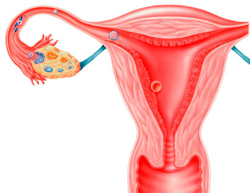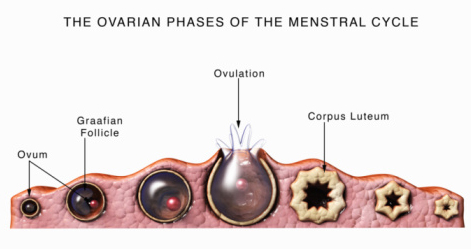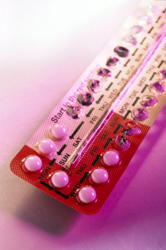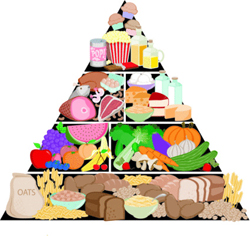CHANGES TO MUM
At week 1 of pregnancy you are not actually pregnant but in another week you will be ovulating and have an opportunity to conceive. During your monthly cycle your body goes through many changes to prepare for conception. Your cycle is mostly controlled by a variety of hormones, as a matter of fact the luteinising hormone (LH) triggers ovulation.
Your cervical secretions go through a number of changes too, your uterus and cervix produce a special secretion that fills the opening of the cervix, lines the uterus and fallopian tubes as you approach your fertile period. This makes the fallopian tubes slippery and ready to receive sperm, ready for when the egg is released. The secretion protects the sperm for 3 to 5 days in your body until ovulation when one follicle ruptures and releases its egg.
Ovulation and your fertile phase is a small period of time and therefore it can make the timing of sexual intercourse and ovulation quite difficult. For women with a 28 day cycle the fertile phase is generally between day 10 and 18 after your period; with ovulation usually occurring on day 14.
Studies have shown that a higher probability of conception occurs if you engage in intercourse 1 to 3 days before ovulation. Therefore a sperm is ready and waiting for the release of an egg, that then becomes a structure called the corpus luteum. This produces progesterone, a hormone essential for the development of an embryo.
A woman is also meant to be most fertile during this time but can be up to 5 days prior to ovulation, therefore successful conception and fertilisation of the egg is more likely at this stage of your cycle. If the egg is not fertilised the corpus luteum shrinks and dies, the endometrium (lining of the uterus) is then shed at your next menstrual period.
Planning for a Baby
If you are planning to try for a baby then there are a few steps that you will need to take prior to trying. Also plan ahead for the changes a baby and becoming a parent will make in your life.
Stopping Contraception
Firstly if you are currently using some form of contraception you will need to stop. This can be easier said than done.
If you are using the pill as your contraceptive, it is referred to as an intrauterine contraceptive device and takes a little more fore-planning. If you have decided to try for a baby it is recommended that you stop taking the pill a month before trying to conceive and having one normal menstrual period before becoming pregnant.
However some studies show that some women can be extremely fertile immediately following stopping taking the pill and therefore could be the perfect time, especially for couples with fertility problems to try for a baby.
Lifestyle Factors
There are other factors that you should consider when trying to conceive such as you and your partners health. If you are both as healthy as you can be at the time of conception then your chances of a trouble-free pregnancy and labour are significantly increased. After all, making some small changes to your lifestyle to increase your chances of a healthy baby really are worth the effort.
Smoking, Drugs & Alcohol
Some lifestyle changes that you should make before having a baby include quiting smoking, drugs (both over the counter and class A drugs) and alcohol consumption. These three changes will not only make a significant difference to your unborn baby’s health but help your chances of conceiving in the first place.
Diet & Exercise
Diet and exercise are further more an important part of your health and the health of your baby. A balanced diet and regular exercise will ensure that you are providing adequately for your baby, plus will reduce strain on your body during pregnancy.
Also ensure that you are getting enough folic acid in your diet. It is recommended that you take a pre-conception vitamin to help prepare your body for pregnancy.
These generally include folic acid to help lower the risk of your baby suffering from birth defects including spina bifida. There are also vitamins for your partner to help with preparing for conception.
For further information on diet (including getting a sufficient amount of vitamins to support the development of a healthy baby) and exercise see the relevant articles found under “During Pregnancy” in the menu.
Age
While you can not change it, yours and your partners age is something that you have to take into consideration when trying for a baby. As mentioned earlier it can affect how long it takes for you to conceive, however it can also affect your babies chances of chromosomal defects such as Down’s syndrome. Testing for chromosomal abnormalities can be done early on during pregnancy for high-risk couples.
Time, Costs & Relationships
There are other factors when deciding to add to your family which you may not have thought of during the excitement. Having a baby is very time consuming and you should be aware of the changes that will occur to your life style.
A baby is a huge commitment and will require a lot of time and attention for at least the next 20 years of your life!
Along with the time needed to take care of a baby (then child) for the next couple of decades also comes the financial responsibility. A significant amount of your earnings will be needed for items related to raising and taking care of your baby and can be quite a shock for some families financially.
Not only do you need many new items that you have never needed before, house hold running costs will also increase with the addition to your family.
Make the decision to have a baby for the right reasons. You may think that having a baby will bring you and your partner closer together, this is NOT a good reason to have a baby.
A baby will change your relationship, but can put strain on one also. A baby is not the solution to “fix” an already volatile relationship. Not only will a baby affect you and your partners relationship but will have an impact on your relationship with close friends and family.


















